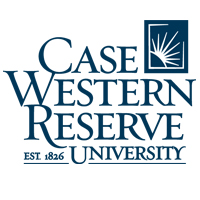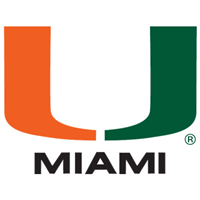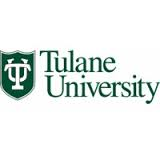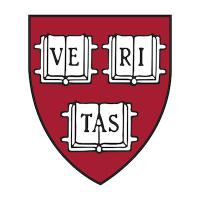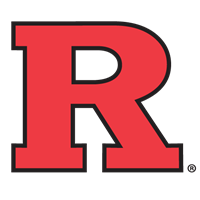What do they do?
Diagnose, treat, and help prevent allergic diseases and disease processes affecting the immune system.
Also known as:
Adult and Pediatric Allergy Partner, Allergist, Allergy and Immunology Physician, Allergy and Immunology Specialist, Allergy Physician, Doctor, Immunologist, Immunology Physician, MD (Medical Doctor), Pediatric Allergist, Pediatric Pulmonologist, Physician
-
0.9%
Change
Ranks #54 in job growth rate370Job Openings
Ranks #9 in net job growth
Looking for colleges that offer a specific major? Use the College Match Tool to find your best-matched schools and discover your estimated Net Price!
- Doctorate or Professional Degree (100%)
- Master's degree (<1%)
- Bachelor's degree (<1%)
- Associate's degree (<1%)
- Some college, no degree (<1%)
- High school diploma equivalent (<1%)
- Less than high school diploma (<1%)
People in this career often have these skills:
- Reading Comprehension - Understanding written sentences and paragraphs in work-related documents.
- Active Listening - Giving full attention to what other people are saying, taking time to understand the points being made, asking questions as appropriate, and not interrupting at inappropriate times.
- Writing - Communicating effectively in writing as appropriate for the needs of the audience.
- Critical Thinking - Using logic and reasoning to identify the strengths and weaknesses of alternative solutions, conclusions, or approaches to problems.
- Judgment and Decision Making - Considering the relative costs and benefits of potential actions to choose the most appropriate one.
- Speaking - Talking to others to convey information effectively.
- Active Learning - Understanding the implications of new information for both current and future problem-solving and decision-making.
- Monitoring - Monitoring/Assessing performance of yourself, other individuals, or organizations to make improvements or take corrective action.
- Complex Problem Solving - Identifying complex problems and reviewing related information to develop and evaluate options and implement solutions.
- Science - Using scientific rules and methods to solve problems.
- Social Perceptiveness - Being aware of others' reactions and understanding why they react as they do.
- Service Orientation - Actively looking for ways to help people.
- Time Management - Managing one's own time and the time of others.
- Learning Strategies - Selecting and using training/instructional methods and procedures appropriate for the situation when learning or teaching new things.
- Instructing - Teaching others how to do something.
People in this career often know a lot about:
- Medicine and Dentistry - Knowledge of the information and techniques needed to diagnose and treat human injuries, diseases, and deformities. This includes symptoms, treatment alternatives, drug properties and interactions, and preventive health-care measures.
- English Language - Knowledge of the structure and content of the English language including the meaning and spelling of words, and rules of composition and grammar.
- Customer and Personal Service - Knowledge of principles and processes for providing customer and personal services. This includes customer needs assessment, meeting quality standards for services, and evaluation of customer satisfaction.
- Biology - Knowledge of plant and animal organisms, their tissues, cells, functions, interdependencies, and interactions with each other and the environment.
- Computers and Electronics - Knowledge of circuit boards, processors, chips, electronic equipment, and computer hardware and software, including applications and programming.
- Administration and Management - Knowledge of business and management principles involved in strategic planning, resource allocation, human resources modeling, leadership technique, production methods, and coordination of people and resources.
- Education and Training - Knowledge of principles and methods for curriculum and training design, teaching and instruction for individuals and groups, and the measurement of training effects.
- Personnel and Human Resources - Knowledge of principles and procedures for personnel recruitment, selection, training, compensation and benefits, labor relations and negotiation, and personnel information systems.
People in this career often have talent in:
- Problem Sensitivity - The ability to tell when something is wrong or is likely to go wrong. It does not involve solving the problem, only recognizing that there is a problem.
- Oral Comprehension - The ability to listen to and understand information and ideas presented through spoken words and sentences.
- Written Comprehension - The ability to read and understand information and ideas presented in writing.
- Oral Expression - The ability to communicate information and ideas in speaking so others will understand.
- Deductive Reasoning - The ability to apply general rules to specific problems to produce answers that make sense.
- Inductive Reasoning - The ability to combine pieces of information to form general rules or conclusions (includes finding a relationship among seemingly unrelated events).
- Written Expression - The ability to communicate information and ideas in writing so others will understand.
- Near Vision - The ability to see details at close range (within a few feet of the observer).
- Speech Clarity - The ability to speak clearly so others can understand you.
- Speech Recognition - The ability to identify and understand the speech of another person.
- Fluency of Ideas - The ability to come up with a number of ideas about a topic (the number of ideas is important, not their quality, correctness, or creativity).
- Selective Attention - The ability to concentrate on a task over a period of time without being distracted.
- Originality - The ability to come up with unusual or clever ideas about a given topic or situation, or to develop creative ways to solve a problem.
- Category Flexibility - The ability to generate or use different sets of rules for combining or grouping things in different ways.
People in this career often do these activities:
- Diagnose medical conditions.
- Treat chronic diseases or disorders.
- Explain medical procedures or test results to patients or family members.
- Order medical diagnostic or clinical tests.
- Prescribe medications.
- Analyze test data or images to inform diagnosis or treatment.
- Record patient medical histories.
- Develop medical treatment plans.
- Examine patients to assess general physical condition.
- Evaluate treatment options to guide medical decisions.
- Collaborate with healthcare professionals to plan or provide treatment.
- Administer screening tests to determine abilities or treatment needs.
- Conduct diagnostic tests to determine patient health.
- Maintain medical or professional knowledge.
- Train medical providers.
- Advise medical personnel regarding healthcare issues.
- Conduct research to increase knowledge about medical issues.
- Present medical research reports.
This page includes data from:

 Occupation statistics: USDOL U.S. Bureau of Labor Statistics Occupational Employment Statistics
Occupation statistics: USDOL U.S. Bureau of Labor Statistics Occupational Employment Statistics


